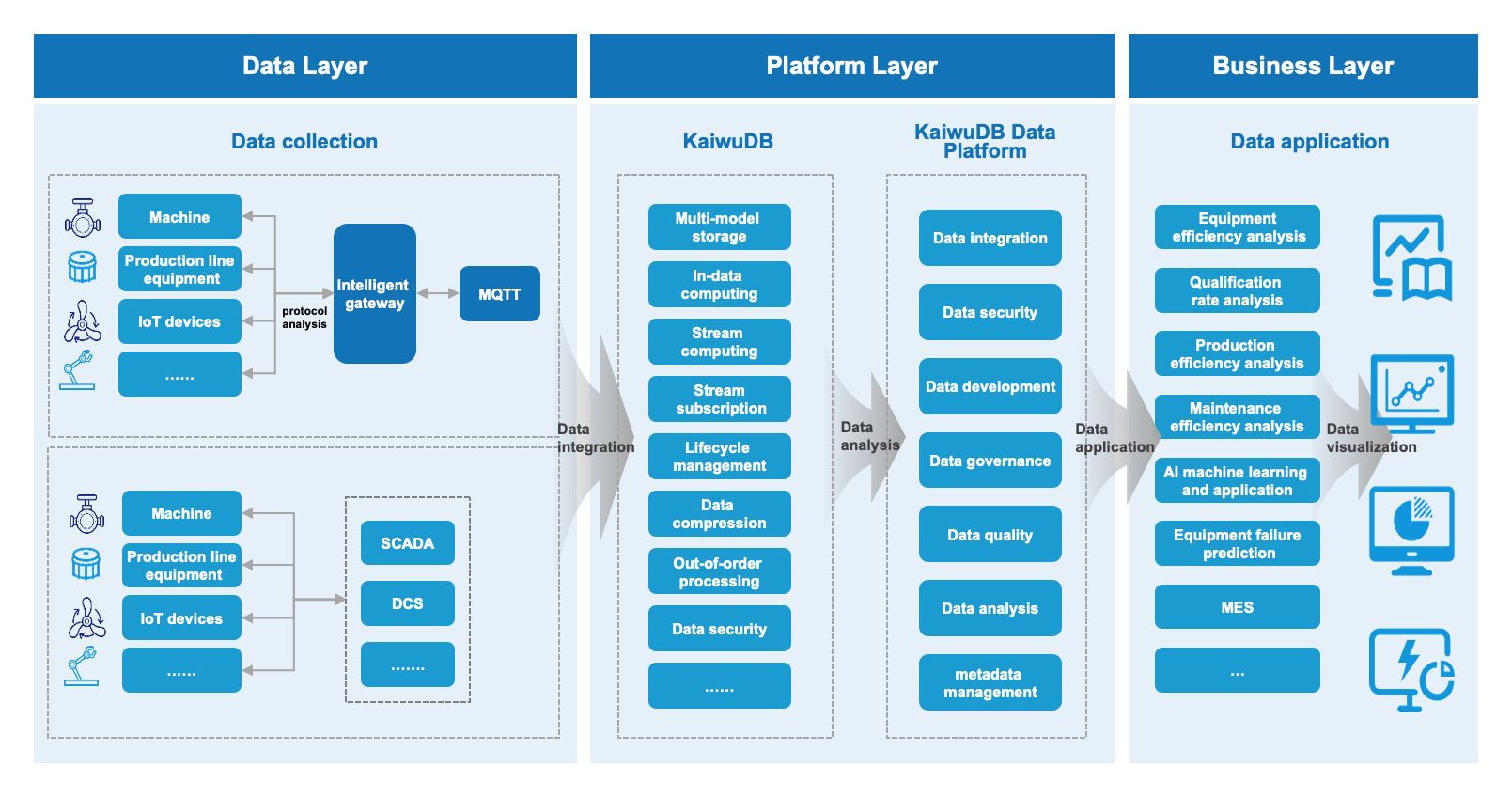For industrial IoT, data is one of the most important resources. Enterprises collect, store, and analyze time-series data generated by machines, equipment, and sensors. This kind of data usually comes from a single source with few updates. It is large-scale and structured and requires more writing and real-time analysis than queries. To meet the above demands, a database needs to offer high reliability, real-time performance, large-scale data processing, high concurrency, high precision, and easy scalability, which poses a higher challenge to data security, data quality, and data management.
1. Difficulties in massive data collection:Massive data collection accuracy is required at millisecond-level, and data processing should be able to handle millions of data generated per second.
2. Poor data qualities:Due to special circumstances, sensors are susceptible to environmental factors, resulting in poor data quality such as missing, abnormal, duplicated, or disordered data.
3. Heavy data storage burden:Generally, industrial data needs to be stored for 5-10 years, which leads to high storage costs and heavy management burdens.
4. High requirements for real-time analysis:Data in IoT scenarios requires real-time processing and analysis, so as to meet the needs like device scheduling and warning systems.
KaiwuDB fully utilizes its multi-model architecture to process time-series and relational data, and achieves high-speed and high-throughput writing of massive time-series data in IIoT scenarios. Combined with in-data computing and other technologies, it supports high-speed aggregated queries and analysis. Integrated with customers' industrial software, big data platforms, IoT platforms, etc., it solves the problems in data acquisition, data storage, and real-time data analysis.
KaiwuDB data platrorm is compatible with various industrial protocols and thus can collect data from multiple sources. At the same time, the platform offers a multi-dimensional and in-depth data exploration and analysis for production scheduling, equipement management, business analysis, predictive analysis, and visualized presentation. Generally, it provides a variety of data services to meet the needs of data acquisition, data quality, and real-time data analysis.

1. Reduced costs for data storage.
KaiwuDB supports up to 100-time data compression, data lifetime management and down-sampling queries, which helps reducing data storage costs by 90%. It also supports multi-model data processing, which enables the system to store and compute multi-model data within one database, and realized unified data sharing. The cloud-edge-terminal synchronization reduced system complexity and redundancy, as well as the costs for system construction and labour.
2. Centralized data management.
KaiwuDB supports cluster deployment to solve the problem of cross-region data sharing. Based on data synchronization, data subscription modules, standard JDBC/ODBC and restful API, KaiwuDB helps our customers to build data centers, and meet their needs in data aggregation, unified data analysis and governance.
3. Guaranteed data security.
Distributed architecture enables high availability and database disaster recovery. Data security is highly guaranteed through permission management, encrypted communication, data encryption and other technologies.
4. Promoted management efficiency.
Benefit from stream-computing and data analysis capabilities, dirty data and disordered data can be cleaned and adjusted, so as to fits subsequent usage in data modeling and analysis, machine learning, and AI training. This helps our customers to promote management efficiency in refined production, risk warning, equipment monitoring and operation, equipment utilization, etc.


